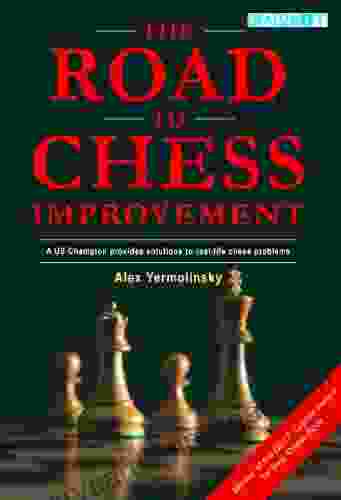How Science and Religion Fumbled the Big One

The COVID-19 pandemic has been a global crisis of unprecedented proportions. As of June 2023, over 6 million people have died from the virus, and the global economy has been devastated. The pandemic has also exposed fundamental flaws in our understanding of the world and our place in it.
In the wake of the pandemic, many have pointed fingers at science and religion for failing to predict the crisis. Scientists are supposed to be able to predict and prevent pandemics. And religions are supposed to provide comfort and guidance in times of crisis. But both science and religion failed us when we needed them most.
4.3 out of 5
| Language | : | English |
| File size | : | 4111 KB |
| Text-to-Speech | : | Enabled |
| Screen Reader | : | Supported |
| Enhanced typesetting | : | Enabled |
| Word Wise | : | Enabled |
| Print length | : | 284 pages |
| Lending | : | Enabled |
In this book, I will argue that the failures of science and religion to predict the COVID-19 pandemic were not simply the result of individual mistakes. Rather, they were the result of systemic issues and missed opportunities. I will also explore the ways in which the pandemic has exposed fundamental flaws in our understanding of the world and our place in it.
Science's Failures
Science has made tremendous progress in recent centuries. We have eradicated diseases, developed new technologies, and extended human life expectancy. But the COVID-19 pandemic has shown us that science is not always able to predict and prevent disasters.
There were a number of reasons why scientists failed to predict the COVID-19 pandemic. First, scientists underestimated the risk of a pandemic. They believed that the influenza pandemic of 1918 was a once-in-a-century event. They also believed that the development of new vaccines and drugs had made us less vulnerable to pandemics.
Second, scientists were not prepared for the unique characteristics of the COVID-19 virus. The virus is highly contagious and can be transmitted by people who are not showing symptoms. It also has a long incubation period, which makes it difficult to track and contain.
Third, scientists were slow to respond to the pandemic. When the virus first emerged in China, scientists were reluctant to sound the alarm. They were afraid of causing panic and disrupting the global economy.
As a result of these failures, the world was not prepared for the COVID-19 pandemic. We did not have enough tests, masks, or ventilators. And we did not have a plan for how to contain the virus.
Religion's Failures
Religion is supposed to provide comfort and guidance in times of crisis. But the COVID-19 pandemic has shown us that religion is not always able to fulfill this role.
There were a number of reasons why religion failed to provide comfort and guidance during the COVID-19 pandemic. First, many religious leaders downplayed the severity of the virus. They said that it was just a flu or that it was a punishment from God. This led to many people not taking the virus seriously enough.
Second, many religious leaders discouraged people from following public health guidelines. They said that wearing masks and social distancing was a violation of their religious freedom. This led to many people not taking the necessary precautions to protect themselves and others from the virus.
Third, many religious leaders promoted conspiracy theories about the virus. They said that it was a hoax or that it was created by the government. This led to many people distrusting the government and public health officials.
As a result of these failures, religion did not provide much comfort or guidance during the COVID-19 pandemic. In fact, in some cases, religion made the pandemic worse.
Systemic Issues
The failures of science and religion to predict the COVID-19 pandemic were not simply the result of individual mistakes. Rather, they were the result of systemic issues.
One systemic issue is the lack of communication between scientists and policymakers. Scientists need to be better at communicating their findings to policymakers. And policymakers need to be better at listening to scientists.
Another systemic issue is the lack of funding for science. Science is a vital part of our society. But it is often underfunded. This makes it difficult for scientists to conduct the research that is needed to predict and prevent pandemics.
A third systemic issue is the lack of public trust in science. The public needs to be better educated about science. And scientists need to be better at communicating their findings to the public.
Missed Opportunities
The COVID-19 pandemic was a missed opportunity for science and religion to come together and help humanity. Science could have provided the data and expertise needed to predict and contain the virus. And religion could have provided the comfort and guidance needed to help people cope with the crisis.
But this did not happen. Instead, science and religion often worked at cross-purposes. This made the pandemic worse than it needed to be.
The COVID-19 pandemic is a wake-up call. It has shown us that we need to do a better job of predicting and preventing pandemics. And it has shown us that we need to do a better job of communicating science to the public.
We also need to do a better job of working together across disciplines. Science and religion can both play a vital role in helping humanity to overcome the challenges of the 21st century. But we need to work together if we want to succeed.
The COVID-19 pandemic has been a global crisis of unprecedented proportions. It has exposed fundamental flaws in our understanding of the world and our place in it. It has also shown us that science and religion are not always able to predict and prevent disasters.
But the pandemic is also an opportunity for us to learn from our mistakes. We can use this as an opportunity to build a better world. A world that is more prepared for future pandemics. A world in which science and religion work together to help humanity overcome the challenges of the 21st century.
4.3 out of 5
| Language | : | English |
| File size | : | 4111 KB |
| Text-to-Speech | : | Enabled |
| Screen Reader | : | Supported |
| Enhanced typesetting | : | Enabled |
| Word Wise | : | Enabled |
| Print length | : | 284 pages |
| Lending | : | Enabled |
Do you want to contribute by writing guest posts on this blog?
Please contact us and send us a resume of previous articles that you have written.
 Book
Book Novel
Novel Page
Page Chapter
Chapter Text
Text Story
Story Genre
Genre Reader
Reader Library
Library Paperback
Paperback E-book
E-book Magazine
Magazine Newspaper
Newspaper Paragraph
Paragraph Sentence
Sentence Bookmark
Bookmark Shelf
Shelf Glossary
Glossary Bibliography
Bibliography Foreword
Foreword Preface
Preface Synopsis
Synopsis Annotation
Annotation Footnote
Footnote Manuscript
Manuscript Scroll
Scroll Codex
Codex Tome
Tome Bestseller
Bestseller Classics
Classics Library card
Library card Narrative
Narrative Biography
Biography Autobiography
Autobiography Memoir
Memoir Reference
Reference Encyclopedia
Encyclopedia Amber Murphy
Amber Murphy Shondreka Palmer
Shondreka Palmer Anatoly Fomenko
Anatoly Fomenko John Clement
John Clement Juan Manuel Acevedo Carvajal
Juan Manuel Acevedo Carvajal Yitzhak Nakash
Yitzhak Nakash Alastair Wilson
Alastair Wilson Twila Slesnick
Twila Slesnick Monika Shah
Monika Shah Amanda Archibald
Amanda Archibald Alli Spotts De Lazzer
Alli Spotts De Lazzer Bronagh Starrs
Bronagh Starrs Alan Watts
Alan Watts Allan Rodney Tilley
Allan Rodney Tilley Lia Litosseliti
Lia Litosseliti Bill Sweetman
Bill Sweetman Albert O Aweto
Albert O Aweto Alocap Ltd
Alocap Ltd Paul Mcgreevy
Paul Mcgreevy Gabriela Drescher
Gabriela Drescher
Light bulbAdvertise smarter! Our strategic ad space ensures maximum exposure. Reserve your spot today!

 Curtis StewartHundreds of Substitutions for Common and Uncommon Utensils, Gadgets, Tools,...
Curtis StewartHundreds of Substitutions for Common and Uncommon Utensils, Gadgets, Tools,...
 Jerry WardJourney into the Enchanting World of The Yorkshire Shepherdess: Amanda Owen's...
Jerry WardJourney into the Enchanting World of The Yorkshire Shepherdess: Amanda Owen's... John GrishamFollow ·16.6k
John GrishamFollow ·16.6k Hassan CoxFollow ·7.3k
Hassan CoxFollow ·7.3k Anthony BurgessFollow ·3k
Anthony BurgessFollow ·3k Henry David ThoreauFollow ·12.9k
Henry David ThoreauFollow ·12.9k Adam HayesFollow ·13.3k
Adam HayesFollow ·13.3k Aleksandr PushkinFollow ·16.9k
Aleksandr PushkinFollow ·16.9k Felipe BlairFollow ·11.4k
Felipe BlairFollow ·11.4k Eugene ScottFollow ·19.4k
Eugene ScottFollow ·19.4k

 Ignacio Hayes
Ignacio HayesUnveiling the Secret Spitfires: Britain's Hidden Civilian...
: The Untold Story of Britain's...

 Scott Parker
Scott ParkerLiving With Schizophrenia: A Father and Son's Journey
Schizophrenia is a serious...

 Ted Simmons
Ted Simmons"From Sign Up to Pass Out": The Shocking and Immersive...
Step into the...

 John Keats
John KeatsThe Development of Biographies and Philosophical...
The Alluring...

 Dan Brown
Dan BrownCapture Your Dream Wedding with Digital Wedding...
Your wedding day is...
4.3 out of 5
| Language | : | English |
| File size | : | 4111 KB |
| Text-to-Speech | : | Enabled |
| Screen Reader | : | Supported |
| Enhanced typesetting | : | Enabled |
| Word Wise | : | Enabled |
| Print length | : | 284 pages |
| Lending | : | Enabled |









